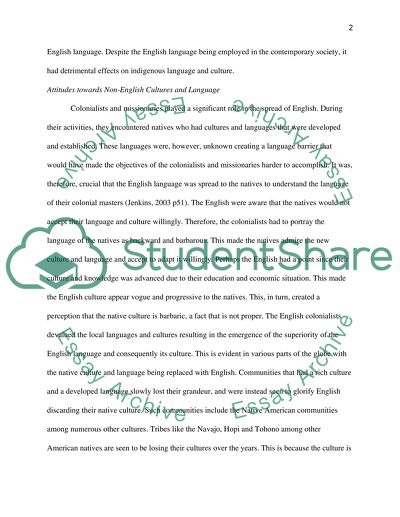Cite this document
(“Attitudes Towards Non-English Cultures and Languages Essay”, n.d.)
Attitudes Towards Non-English Cultures and Languages Essay. Retrieved from https://studentshare.org/sociology/1453843-read-pages
Attitudes Towards Non-English Cultures and Languages Essay. Retrieved from https://studentshare.org/sociology/1453843-read-pages
(Attitudes Towards Non-English Cultures and Languages Essay)
Attitudes Towards Non-English Cultures and Languages Essay. https://studentshare.org/sociology/1453843-read-pages.
Attitudes Towards Non-English Cultures and Languages Essay. https://studentshare.org/sociology/1453843-read-pages.
“Attitudes Towards Non-English Cultures and Languages Essay”, n.d. https://studentshare.org/sociology/1453843-read-pages.


